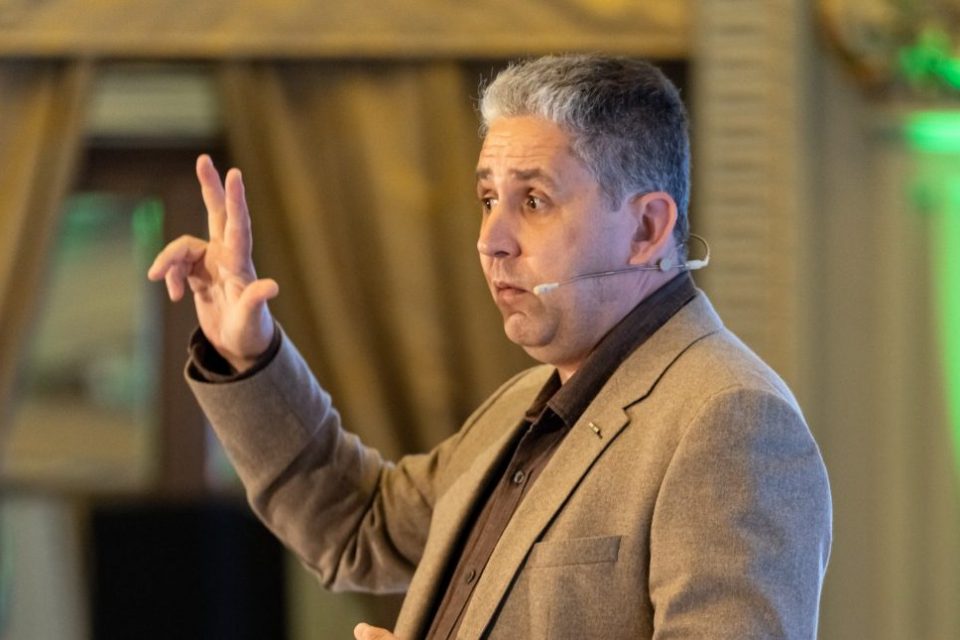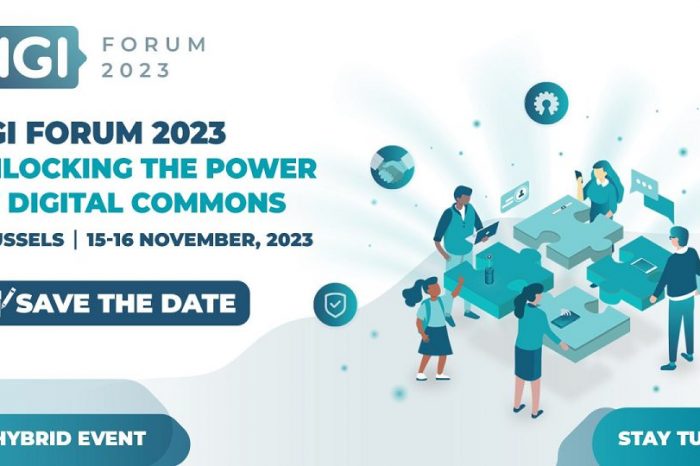Veeam experts warn: Prepare for a “Digital Pandemic”

Although the effects of the medical emergency of the beginning of the decade are still making themselves known, data protection experts at Veeam Software draw attention to a new danger that is taking shape against the backdrop of revolutionary developments in science and technology. A global security emergency, or a type of “digital pandemic”, could be unleashed in the near future if we do not keep up with the speed in which new threats are developing.
Reports of ChatGPT and Generative AI have been flying everywhere, taking the world by storm and making us rethink our vision of the future. According to Edwin Weijdema, Field CTO EMEA & Global Cybersecurity Technologist at Veeam, this is, in itself, certainly not a bad thing. “This way transparency is created that will allow us to understand what is coming our way. As with cybersecurity and ransomware, we should not be blind to the risks and everything that needs to happen around these new technologies. Fortunately, fear is not necessary anywhere. We already went through this. More than once. And we have survived every time”.
“From ChatGPT to a robot dog frolicking through the living room, artificial intelligence is really starting to make its mark on wider society. On one hand, this presents enormous opportunities. For example, think of the medical sector where nanobots or tiny robots can save human lives. But on the other hand, we must also dare to ask the question who will be responsible if things go wrong with AI? The party that programmed the system? The supplier of the tool? The end user? Or a combination of all three?”
As the tech landscape changes, so do the threats to our security. “We need to be aware that the ever-evolving tools at our disposal are also employed, sometimes more masterfully, by bad actors”, says Cornel Popescu, Senior Systems Engineer at Veeam. “The sophistication of cybercriminals has been rising exponentially in the last years, and it shows no sign of slowing. On the contrary, the increase in cyberattacks experienced by all types of organizations, governments and private persons all over the world shows that their versatility and mobility is helping them get ahead of their victims’ attempts to protect themselves and their data”, he warns.
But how do we make sure the human element remains central to our activity? “We must dare to think about the impact technology has on our society. Unfortunately, humans have never been good at change and we prefer to stick our heads in the sand until something effectively impacts our personal lives. Compare it to the way we use backup. At first there was awareness that backup is important, but no one wanted to pay for it. Until ransomware suddenly became ubiquitous and organizations understood that good backup should be at the front of the security chain. AI technology may also gradually move up in that chain”, adds Cornel Popescu.
Prepare, respond, recover
So how should we deal with technological developments that have the potential to completely reshape the way we work? “Actually, we already know the answer, because we experienced it all before”, says Edwin Weijdema. “We can even speak of a cycle that occurs when we unleash a new invention or technology on the world. Almost everything is developed with the intention of doing good, yet we see that there always comes a time first when someone starts abusing a solution. Gunpowder was once invented with the best of intentions until people discovered they could blow things up with it. Advanced IT applications allow companies to generate more business, until hackers see an opportunity to spread ransomware through these channels. AI systems do revolutionary things, until things go wrong because bias crept into the solution.”
“As we know from past revolutionizing advancements, when we introduce new technology, we go through the same three-step process every time”, says Cornel Popescu. ”First, we try to prepare as best we can. In the next step, we react to the problems that arise. And finally, we fix what went wrong. For example, you can’t completely stop a hacker with any security tool, but you can limit the damage by slowing down the attack and pushing it in another direction. In essence, what we need to do is acknowledge how the new tools can be used against us, as well as for our benefit, and find innovative ways to mitigate the damage. The faster we come full circle, the sooner we can take advantage of the positive impact technology has on our lives.”.
Avoiding a digital pandemic
Therefore, proper preparation is essential. And for that, according to Edwin Weijdema, transparency is necessary. “If we know what is happening in the market and what changes are coming, we can better anticipate them and develop a policy or legislation. Transparency is the best defense for building something in a sustainable way. Usually the pieces of the puzzle are in different parties and we need to bring together as many perspectives as possible. It is important that we put people with the right technical background in places where decisions are made. Leaders and policy makers need to be surrounded by people with the right expertise. Not coincidentally, technology giants are some of the most successful companies in the world today. They are run by people with a vision of the future.”
“Data protection experts have been warning for years that the sophistication of cyber criminals is growing, and right now we are at a crossroads. We either acknowledge the dangers and learn to employ new ways to counter them, or we forfeit the access to effective paths out of the coming cyberattack epidemics – or pandemic. According to the Veeam Ransomware Trends Report 2023, 60% of the organizations that experienced cyber-attacks in the last year believe a significant overhaul is needed in back-up and security – that means that the world companies were preparing for in the past no longer exists”, says Cornel Popescu.
“Just as health experts were suddenly sitting in news studios daily during the COVID-19 era, filling newspapers and influencing decisions, digital technology experts must now assume their role to prepare our society and companies. Only proper preparation can prevent our society from falling into a digital pandemic. After all, we are facing the greatest innovation since the Industrial Revolution”, according to Edwin Weijdema.
“In every revolution humanity has experienced, we didn’t know what to do at first. Yet each time we got out of it. Now we have the advantage of being better prepared because we already know a piece of the process. And the rest we can discover together, with a little forethought and vigilance”, concludes Cornel Popescu.













